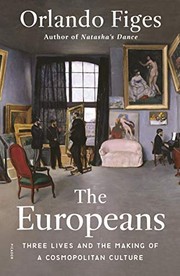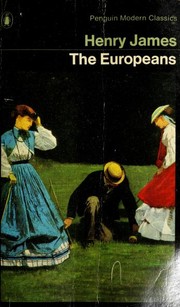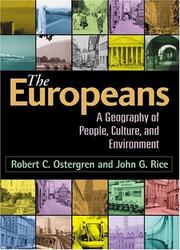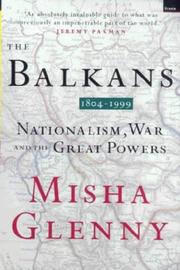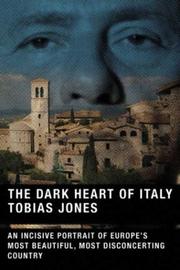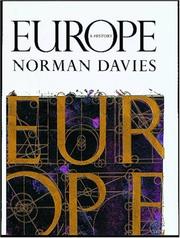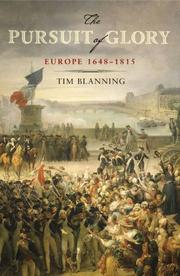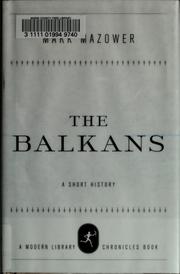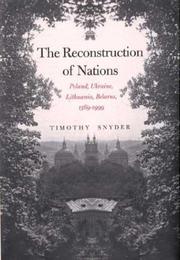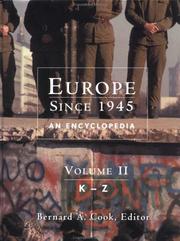If you’re a bookworm with a passion for European history, culture, and literature, you’re in for a treat. We’ve curated a list of the 20 best books about Europe that will transport you to the charming streets of Paris, the rugged landscapes of Scotland, and the bustling markets of Istanbul. Whether you’re interested in gripping historical fiction, insightful travel memoirs, or in-depth analyses of European politics, our selection has something for every avid reader. From classics to contemporary bestsellers, these books on Europe will satisfy your wanderlust and deepen your understanding of this diverse and fascinating continent.
Contents
- 1 20 Best Europe Books
- 2 The Silk Roads: A New History of the World
- 3 The Europeans: Three Lives and the Making of a Cosmopolitan Culture
- 4 The Europeans
- 5 The Europeans: A Geography of People, Culture, and Environment
- 6 A Short History of Europe: From Pericles to Putin
- 7 Postwar: A History of Europe Since 1945
- 8 The Pursuit of Power: Europe 1815-1914
- 9 Iron Curtain: The Crushing of Eastern Europe 1944-1956
- 10 Europe: A Natural History
- 11 The Third Reich in Power
- 12 The Balkans: Nationalism, War, and the Great Powers, 1804-2011
- 13 The Dark Heart of Italy
- 14 Europe: A History
- 15 The Making of Europe: Conquest, Colonization and Cultural Change, 950-1350
- 16 The Reformation: A History
- 17 The Pursuit of Glory: Europe 1648-1815
- 18 The French Revolution: From Enlightenment to Tyranny
- 19 The Balkans: A Short History
- 20 The Reconstruction of Nations: Poland, Ukraine, Lithuania, Belarus, 1569-1999
- 21 Europe Since 1945: An Encyclopedia
- 22 Final Thoughts on Best Europe Books
- 23
20 Best Europe Books
The Silk Roads: A New History of the World
by Peter Frankopan
The Silk Roads by Peter Frankopan is a captivating book about Europe that offers a fresh perspective on world history. Instead of focusing solely on the Western world, Frankopan explores the interconnectedness of civilizations along the ancient trade routes that linked Asia, the Middle East, Africa, and Europe. This groundbreaking book challenges the traditional Eurocentric view of history and highlights the significant role that the East has played in shaping the modern world. Frankopan’s narrative weaves together stories of conquest, commerce, and cultural exchange, showcasing how the flow of goods, ideas, and people along the Silk Roads has influenced the development of societies and empires across the globe. Readers will be enthralled by the rich tapestry of events and characters that Frankopan brings to life, shedding new light on the intricate web of connections that have shaped human civilization. Whether you’re a history enthusiast or simply curious about the broader forces that have shaped our world, The Silk Roads offers a compelling and enlightening journey through the book on Europe.
The Europeans: Three Lives and the Making of a Cosmopolitan Culture
by Orlando Figes
The Europeans: Three Lives and the Making of a Cosmopolitan Culture by Orlando Figes is a captivating book about Europe that explores the interconnected lives of three prominent figures in the 19th century. Figes delves into the lives of a Russian pianist, a Polish actress, and a British writer to paint a vivid picture of the vibrant and complex European cultural scene during this time period.
Through meticulous research and engaging storytelling, Figes masterfully weaves together the individual experiences of these three figures to illustrate the dynamic interactions and exchanges that shaped a cosmopolitan europe. The book on europe provides a rich and nuanced portrayal of the artistic, intellectual, and social currents that flowed across national boundaries, highlighting the ways in which Europe was a melting pot of ideas and influences.
Readers will be drawn into the world of 19th-century europe as Figes brings to life the personalities and relationships that contributed to the making of a cosmopolitan culture. The Europeans is a compelling and enlightening europe book that offers a fresh perspective on the interconnectedness of European history and culture.
The Europeans
by Henry James
The Europeans by Henry James is a captivating novel that delves into the complexities of cultural differences and social nuances in the 19th century. The story follows the arrival of Eugenia and Felix, two sophisticated and cosmopolitan Europeans, to the quaint and traditional New England town of Boston. As they navigate the unfamiliar customs and expectations of American society, their contrasting personalities and attitudes towards life lead to a series of intriguing interactions with the locals. Through humorous and insightful observations, James masterfully explores the clash between the old world and the new, shedding light on the cultural divide between Europe and America. This thought-provoking novel is a compelling book about Europe that offers a unique perspective on the clash of cultures in a rapidly changing world. With its rich character development and vivid descriptions, The Europeans is a timeless classic that continues to resonate with readers seeking to understand the complexities of human nature and societal norms.
The Europeans: A Geography of People, Culture, and Environment
by Robert C. Ostergren
The Europeans: A Geography of People, Culture, and Environment by Robert C. Ostergren is a captivating exploration of the diverse landscapes, cultures, and societies that make up the continent of Europe. This insightful book delves into the intricate connections between the people, their environment, and the rich tapestry of European culture. Through a combination of historical context, geographical analysis, and cultural anecdotes, Ostergren paints a vivid picture of the complex interplay between the physical geography of Europe and the development of its diverse cultures.
Readers will embark on a fascinating journey through time and space, gaining a deeper understanding of the ways in which European landscapes have shaped the lives and identities of its inhabitants. The Europeans is a must-read for anyone with a passion for geography, history, or the diverse cultures of the world. Whether you’re a seasoned explorer or an armchair traveler, this book about Europe will transport you to the heart of the continent and leave you with a newfound appreciation for its rich and varied tapestry of peoples and places.
A Short History of Europe: From Pericles to Putin
by Simon Jenkins
A Short History of Europe: From Pericles to Putin by Simon Jenkins provides a fascinating journey through the tumultuous and diverse history of the continent. This insightful book on Europe offers a concise yet comprehensive overview of the key events, figures, and developments that have shaped the region from ancient Greece to the modern era under Putin’s rule. Jenkins skillfully navigates through centuries of political upheaval, cultural achievements, and social transformations, offering readers a rich tapestry of European history.
From the rise and fall of empires to the impact of religious and philosophical movements, this Europe book captures the essence of the continent’s complex past. Jenkins’s engaging narrative style and astute analysis make this book about Europe an essential read for anyone seeking to understand the forces that have shaped the European landscape. Whether you’re a history buff or simply curious about the story of Europe, A Short History of Europe is a must-read for anyone interested in the continent’s enduring legacy.
Postwar: A History of Europe Since 1945
by Tony Judt
Postwar: A History of Europe Since 1945 by Tony Judt is a comprehensive and engaging book on Europe’s tumultuous journey in the second half of the 20th century. Judt provides a detailed account of the political, social, and economic developments that shaped Europe after the devastation of World War II. From the division of the continent during the Cold War to the eventual reunification, the book covers the major events and shifts in power that defined the region.
With meticulous research and insightful analysis, Judt examines the reconstruction efforts, the rise of the European Union, and the challenges faced by different countries in the postwar era. The book offers a rich narrative that captures the complexities and contradictions of Europe’s history, making it an essential read for anyone interested in understanding the continent’s evolution. Postwar is more than just a book about Europe; it is a compelling exploration of the continent’s resilience, transformation, and identity.
The Pursuit of Power: Europe 1815-1914
by Richard J. Evans
The Pursuit of Power: Europe 1815-1914 is a captivating book about Europe during the 19th century, written by Richard J. Evans. This meticulously researched and engagingly written book provides a comprehensive overview of the political, economic, social, and cultural developments that shaped Europe during this crucial period. Evans explores the major events and trends that transformed Europe from a continent of monarchies and empires to one of nation-states and industrial powerhouses.
The book delves into the rise of nationalism, the impact of industrialization, the intricacies of international relations, and the profound changes in society and culture. Evans skillfully weaves together the various threads of European history to create a compelling narrative that is both informative and thought-provoking. Whether you are a history buff, a student of European history, or simply interested in understanding the forces that shaped the modern world, The Pursuit of Power is an essential read that offers valuable insights into the complexities of Europe during the 19th century.
Iron Curtain: The Crushing of Eastern Europe 1944-1956
by Anne Applebaum
Iron Curtain: The Crushing of Eastern Europe 1944-1956 by Anne Applebaum is a compelling and meticulously researched book on Europe that delves into the post-World War II period and the subsequent Soviet domination of Eastern Europe. Applebaum’s narrative skillfully captures the political, social, and cultural upheaval that characterized this tumultuous era, offering a comprehensive overview of the events that led to the establishment of communist regimes in countries such as Poland, Hungary, and Czechoslovakia.
Through a combination of archival research and firsthand accounts, the author provides a vivid portrayal of the repression, resistance, and human suffering that defined life behind the Iron Curtain. By exploring the complex dynamics between the Soviet Union and its satellite states, Applebaum offers valuable insights into the lasting impact of this period on the region’s history and identity. Iron Curtain is an essential read for anyone interested in gaining a deeper understanding of the turbulent history of Eastern Europe and the enduring legacy of communism.
Europe: A Natural History
by Tim Flannery
Europe: A Natural History by Tim Flannery is an enthralling exploration of the diverse and captivating landscapes that have shaped the continent over millions of years. This remarkable book delves into the geological forces, climate changes, and the incredible biodiversity that have defined Europe’s natural history. Through vivid storytelling and scientific insight, Flannery takes readers on a journey through ancient forests, towering mountains, and sweeping plains, revealing the intricate connections between the continent’s ecosystems and their evolutionary history.
With a keen eye for detail and a deep appreciation for the wonders of nature, Flannery paints a vivid portrait of Europe’s rich and complex natural heritage. From the icy realms of the Arctic to the sun-drenched Mediterranean shores, this book offers a profound understanding of the forces that have shaped Europe’s landscapes and the remarkable adaptations of its flora and fauna. Whether you’re a nature enthusiast, a history buff, or simply curious about the natural world, this captivating book about Europe is sure to inspire and educate.
The Third Reich in Power
by Richard J. Evans
The Third Reich in Power by Richard J. Evans is a compelling book about Europe that delves into the rise of Nazi Germany and its grip on Europe during the 1930s. This meticulously researched work provides a detailed account of how Adolf Hitler and the Nazi Party consolidated their power, transformed German society, and extended their influence across the continent. Evans meticulously examines the political, social, and economic aspects of the Third Reich, offering a comprehensive understanding of the dynamics that shaped this tumultuous period in Europe.
Through vivid storytelling and insightful analysis, Evans brings to life the complexities of life under the Nazi regime, shedding light on the experiences of both oppressors and oppressed. The book on Europe also explores the impact of Nazi policies on various aspects of society, from culture and education to the economy and everyday life. The Third Reich in Power is an essential read for anyone seeking a deeper understanding of this dark chapter in Europe’s history.
The Balkans: Nationalism, War, and the Great Powers, 1804-2011
by Misha Glenny
The Balkans: Nationalism, War, and the Great Powers, 1804-2011 is a comprehensive and gripping book about Europe that delves into the complex history of the Balkan region. Misha Glenny, a renowned journalist and historian, provides a detailed account of the political, social, and cultural dynamics that have shaped the Balkans over the past two centuries.
From the rise of nationalism and the struggle for independence to the devastating wars of the 20th century, Glenny weaves together a compelling narrative that illuminates the intricate relationships between the Balkan states and the Great Powers of Europe. The book offers a deep insight into the conflicts and power struggles that have defined the region, shedding light on the enduring impact of these events on contemporary Balkan politics and society.
With meticulous research and engaging storytelling, The Balkans: Nationalism, War, and the Great Powers, 1804-2011 is a must-read for anyone interested in understanding the tumultuous history of this book on Europe.
The Dark Heart of Italy
by Tobias Jones
The Dark Heart of Italy by Tobias Jones is a captivating non-fiction book that delves into the complex and enigmatic society of Italy. Through his engaging writing style, Jones uncovers the darker aspects of the country, exploring its history, politics, and culture, and revealing the intricate web of corruption, crime, and power struggles that lie beneath the surface. This insightful and thought-provoking book offers a unique perspective on the Italian way of life, providing a deep and fascinating insight into the country’s complexities and contradictions. Whether you’re a history buff, a political enthusiast, or simply have a keen interest in European culture, this book about Europe is sure to captivate and inform you, shedding light on the shadowy underbelly of Italy and offering a deeper understanding of this fascinating corner of the continent.
Europe: A History
by Norman Davies
Europe: A History by Norman Davies is a sweeping and insightful book about the continent of Europe. Davies takes readers on a captivating journey through the tumultuous history of the region, from ancient times to the present day. This comprehensive and engaging book on Europe delves into the political, social, and cultural developments that have shaped the continent, offering a rich tapestry of insights and anecdotes along the way.
Readers will find themselves immersed in the fascinating stories of Europe’s great civilizations, legendary leaders, and pivotal events. Davies skillfully weaves together the diverse threads of European history, providing a balanced and nuanced perspective on the complex forces that have driven the continent’s evolution. Whether you’re a history buff or simply curious about the past, this book about Europe is a must-read for anyone seeking a deeper understanding of the continent’s enduring influence on the world stage.
The Making of Europe: Conquest, Colonization and Cultural Change, 950-1350
by Robert Bartlett
The Making of Europe: Conquest, Colonization and Cultural Change, 950-1350 by Robert Bartlett is a captivating exploration of the transformation of medieval Europe. This compelling book delves into the dynamic period of European history, examining the conquests, colonization, and cultural shifts that shaped the continent between the 10th and 14th centuries.
Bartlett’s insightful analysis offers a comprehensive understanding of how Europe evolved during this pivotal era, encompassing the impact of war, migration, trade, and religious expansion on the continent’s social, political, and economic landscape. Through meticulous research and engaging storytelling, the author vividly portrays the complex interplay of power, religion, and identity that defined the medieval European experience.
Readers of this book on Europe will gain a deeper appreciation for the rich tapestry of influences that contributed to the making of the continent, from the rise of feudalism to the spread of Christianity and the encounters with other civilizations. With its thought-provoking narrative and scholarly depth, The Making of Europe offers an illuminating journey into the heart of medieval Europe.
The Reformation: A History
by Diarmaid MacCulloch
The Reformation: A History by Diarmaid MacCulloch is a captivating and comprehensive book on Europe that delves into the religious and social upheaval that swept across the continent in the 16th century. MacCulloch, a renowned historian, provides a detailed account of the complex political, cultural, and theological forces that shaped this transformative period. Through meticulous research and engaging storytelling, he explores the key figures, events, and ideas that drove the Reformation, from Martin Luther’s 95 Theses to the spread of Protestantism and the Catholic Counter-Reformation.
MacCulloch’s book about Europe offers a nuanced and thought-provoking analysis of how the Reformation reshaped not only the religious landscape but also the political and social fabric of Europe. With insightful commentary and rich historical context, he brings to life the conflicts, controversies, and enduring legacies of this pivotal era. Whether you’re a history enthusiast or simply curious about the tumultuous history of Europe, this book is a must-read for anyone seeking a deeper understanding of the Reformation and its enduring impact.
The Pursuit of Glory: Europe 1648-1815
by Tim Blanning
The Pursuit of Glory: Europe 1648-1815 by Tim Blanning is a captivating book about Europe in the period between the end of the Thirty Years War and the end of the Napoleonic Wars. Blanning takes readers on a journey through the political, social, and cultural landscape of Europe during this transformative era. From the rise of absolute monarchies to the Enlightenment and the French Revolution, the book delves into the power struggles, revolutions, and intellectual movements that shaped the continent.
Blanning’s narrative is engaging and rich in detail, offering a comprehensive overview of the key events and figures that defined this period in European history. Through his meticulous research and compelling storytelling, he brings to life the complexities and contradictions of a continent in flux. Whether you’re a history buff or simply curious about this pivotal time in European history, The Pursuit of Glory is a must-read for anyone interested in understanding the forces that shaped modern Europe.
The French Revolution: From Enlightenment to Tyranny
by Ian Davidson
The French Revolution: From Enlightenment to Tyranny by Ian Davidson is a captivating book on Europe that delves into the tumultuous period of the late 18th century. Davidson skillfully navigates through the intellectual and cultural landscape of pre-revolutionary France, exploring the ideas of the Enlightenment and the social, political, and economic conditions that led to the eruption of one of the most significant events in European history. The book offers a vivid portrayal of the key figures, such as Robespierre and Marie Antoinette, and the pivotal moments that shaped the revolution, from the storming of the Bastille to the Reign of Terror. Davidson’s narrative is both informative and engaging, providing a comprehensive understanding of the complexities and contradictions of the revolution. With its insightful analysis and compelling storytelling, this book about Europe is a must-read for anyone interested in understanding the transformative impact of the French Revolution on Europe and the world.
The Balkans: A Short History
by Mark Mazower
The Balkans: A Short History by Mark Mazower is a captivating book on Europe that delves into the complex and tumultuous history of the Balkan region. Mazower’s engaging narrative takes readers on a journey through the intricate web of political, cultural, and social dynamics that have shaped the Balkans over the centuries. From the rise and fall of empires to the struggles for independence and the impact of modern ideologies, this book about Europe provides a comprehensive understanding of the region’s rich and often turbulent history. Mazower’s insightful analysis offers a fresh perspective on the diverse peoples and cultures that have coexisted in this fascinating corner of Europe. With meticulous research and compelling storytelling, The Balkans: A Short History is a must-read for anyone seeking to deepen their knowledge of this historically significant and captivating region.
The Reconstruction of Nations: Poland, Ukraine, Lithuania, Belarus, 1569-1999
by Timothy Snyder
The Reconstruction of Nations: Poland, Ukraine, Lithuania, Belarus, 1569-1999 by Timothy Snyder is a captivating book about Europe that delves into the complex history and interwoven destinies of Poland, Ukraine, Lithuania, and Belarus. Snyder offers a comprehensive exploration of the political, cultural, and social developments of these nations from the Union of Lublin in 1569 to the end of the 20th century.
Through meticulous research and compelling storytelling, Snyder unravels the intricate relationships and conflicts that have shaped the europe book of Eastern Europe. He examines the impact of empires, revolutions, and wars on the formation of national identities and the struggle for independence. The book also sheds light on the cultural and linguistic diversity of the region, challenging conventional narratives and stereotypes.
With its rich historical analysis and thought-provoking insights, The Reconstruction of Nations is a must-read for anyone interested in understanding the intricate tapestry of Eastern Europe and the enduring quest for nationhood.
Europe Since 1945: An Encyclopedia
by Bernard A. Cook
Europe Since 1945: An Encyclopedia by Bernard A. Cook is a comprehensive reference book on Europe’s history, politics, and culture since the end of World War II. This encyclopedic volume provides a detailed overview of the continent’s tumultuous journey through the Cold War, the rise and fall of the Iron Curtain, and the subsequent reunification of East and West. Covering a wide range of topics, from politics and economics to art and literature, this book offers a rich tapestry of the European experience in the post-war era.
Readers will find in-depth articles on key events, influential figures, and significant movements that have shaped the continent’s development over the past seven decades. Whether you are a student, scholar, or history enthusiast, this encyclopedia serves as an invaluable resource for understanding the complexities and nuances of post-war Europe. With its engaging and informative entries, Europe Since 1945: An Encyclopedia is an essential addition to any library and a must-read for anyone interested in the history and culture of the continent.
Final Thoughts on Best Europe Books
Exploring the rich history, diverse cultures, and captivating landscapes of Europe through literature is a remarkable journey. The 20 best books about Europe offer a compelling and immersive experience, delving into the continent’s complexities and beauty. Whether it’s through classic novels, travel memoirs, or historical accounts, these books provide a deep understanding of Europe’s past and present. Dive into these captivating reads to embark on an unforgettable literary exploration of Europe.
Which book about Europe is best?
The best book on Europe can vary with personal preference, but three widely recommended titles are:
- The Silk Roads: A New History of the World by Peter Frankopan,
- The Europeans: Three Lives and the Making of a Cosmopolitan Culture by Orlando Figes,
- The Europeans by Henry James.
Each offers valuable insights and could be a great starting point.
What are the best books to learn about Europe?
For those looking to learn about Europe, there is a wealth of literature that can provide a comprehensive understanding of the subject. Some of the most highly recommended books include:
- The Silk Roads: A New History of the World by Peter Frankopan,
- The Europeans: Three Lives and the Making of a Cosmopolitan Culture by Orlando Figes,
- The Europeans by Henry James,
- The Europeans: A Geography of People, Culture, and Environment by Robert C. Ostergren,
- A Short History of Europe: From Pericles to Putin by Simon Jenkins,
- Postwar: A History of Europe Since 1945 by Tony Judt,
- The Pursuit of Power: Europe 1815-1914 by Richard J. Evans,
- Iron Curtain: The Crushing of Eastern Europe 1944-1956 by Anne Applebaum,
- Europe: A Natural History by Tim Flannery,
- The Third Reich in Power by Richard J. Evans
These books offer a range of perspectives on Europe, covering various aspects and approaches to the subject.
What are the best books about Europe?
The best books about Europe are:
- The Silk Roads: A New History of the World by Peter Frankopan,
- The Europeans: Three Lives and the Making of a Cosmopolitan Culture by Orlando Figes,
- The Balkans: Nationalism, War, and the Great Powers, 1804-2011 by Misha Glenny,
- The Dark Heart of Italy by Tobias Jones,
- Iron Curtain: The Crushing of Eastern Europe 1944-1956 by Anne Applebaum,
- Postwar: A History of Europe Since 1945 by Tony Judt.
Each offers unique insights into the subject. While these books about Europe are highly regarded, it’s important to note that any list of ‘best’ books is subjective and reflects a range of opinions.
What are the best Europe books of all time?
Choosing the best Europe books of all time can vary depending on who you ask, but five titles that are often celebrated include
- The Silk Roads: A New History of the World by Peter Frankopan,
- The Europeans: Three Lives and the Making of a Cosmopolitan Culture by Orlando Figes,
- A Short History of Europe: From Pericles to Putin by Simon Jenkins,
- Iron Curtain: The Crushing of Eastern Europe 1944-1956 by Anne Applebaum,
- and The Balkans: Nationalism, War, and the Great Powers, 1804-2011 by Misha Glenny.
Each of these books has made a significant impact in the field of Europe and continues to be influential today.


